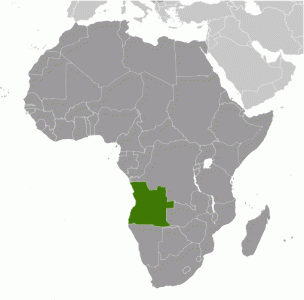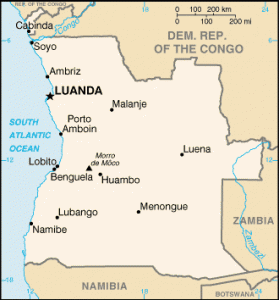
In 1992 I moved to Paris. I brought my love of brownies with me.
There was just one problem.
No one sold or made brownies (there were amazing croissants everywhere, yes – but brownies, no).
I was only 13 years old and I was homesick.
By 1995 I went to extreme measures to get my hands on some brownies. I asked any American within shouting distance for a recipe. In a strange turn of events an Irish priest handed me a recipe scribbled on a scrap of paper. I’m not sure who told him about my plight but I was thrilled!
I immediately got to work. I made brownies by the boatload. I brought them to school parties, friends’ houses, picnics, and so on.
So what does this have to do with Angola?
Food habits follow people, migrating from country to country. Even as years and miles add up, cultures remain linked through food habits.
Angola was a Portuguese colony for 300 years.
300 years!
If I could infiltrate Parisian suburbs with brownies in 3 years, you better believe that the Portuguese significantly impacted Angolan food in 300.
Portugal’s influence on Angolan cuisine:
Spicy foods: Like Portugal, Angola uses a lot of hot spices. Habanero peppers are popularly used in meat and fish dishes.
Marinades: This European technique made isnow used in Angola. Marinades make tough cuts of meat tender and flavorful.
Olive Oil: Although a lot of palm oil is used in Angola, the Portugese love of olive oil made its way into the cuisine as well.
Stews: Portuguese-style spicy soups are a mainstay.
A note on Brazil: Brazil was also a colony of Portugal. Many Brazilian foods and techniques were introduced to Angola by Portuguese colonizers.




8 Comments